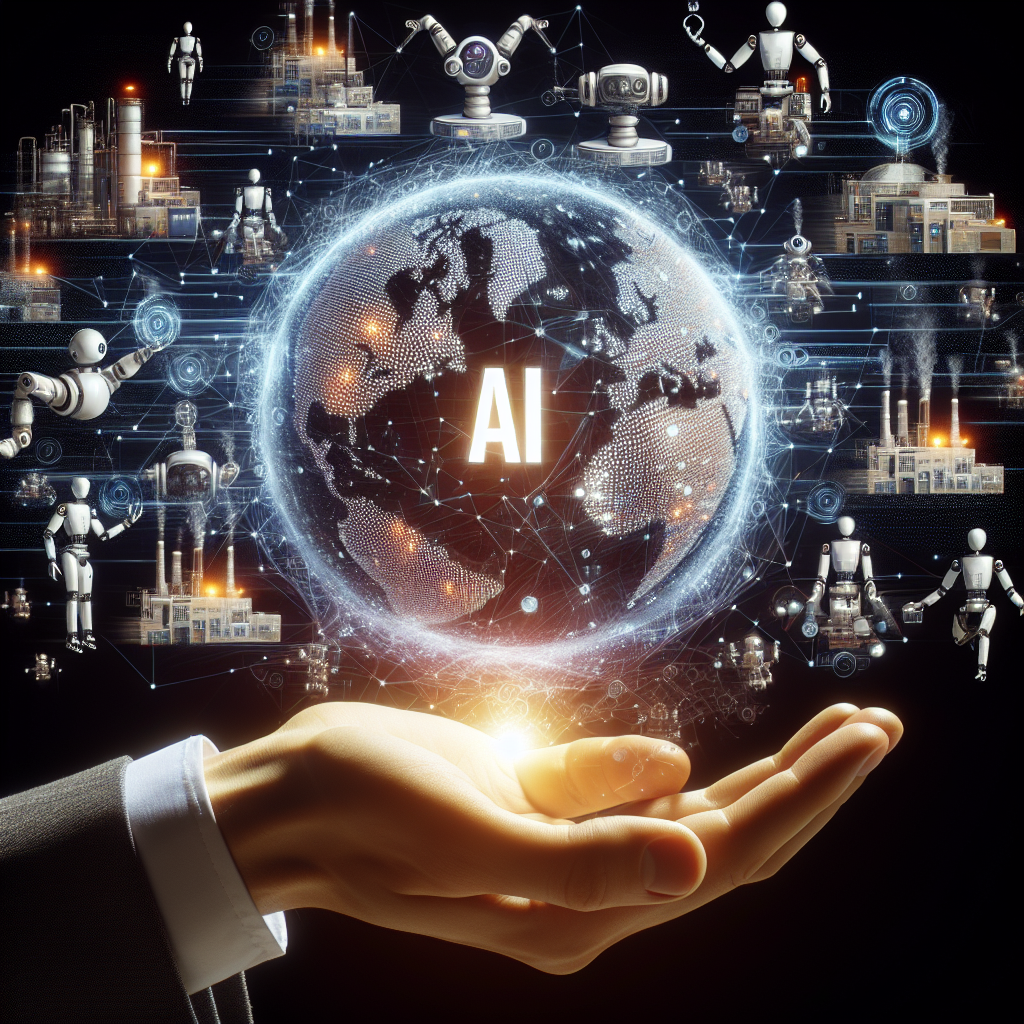Artificial Intelligence (AI) has been a transformative technology that has the potential to revolutionize various industries and sectors. However, one of the key challenges in the adoption of AI has been its accessibility and affordability. AI democratization is changing this paradigm by making AI technology more accessible and affordable to a wider range of users, including individuals, businesses, and governments. This article will explore how AI democratization is changing the world and its implications for society.
What is AI democratization?
AI democratization refers to the process of making AI technology more accessible and affordable to a wider range of users. Traditionally, AI technology has been expensive and complex, requiring specialized skills and resources to develop and deploy. However, with advancements in AI technology and the rise of cloud computing, AI tools and platforms are becoming more accessible to a broader audience.
AI democratization is driven by the belief that AI has the potential to transform various industries and sectors, and that everyone should have the opportunity to benefit from this technology. By making AI more accessible, democratization aims to empower individuals, businesses, and governments to harness the power of AI to drive innovation, improve efficiency, and solve complex problems.
How is AI democratization changing the world?
AI democratization is changing the world in several ways. Here are some of the key ways in which AI democratization is impacting society:
1. Empowering individuals: AI democratization is enabling individuals to access AI tools and platforms to develop new applications, automate tasks, and gain insights from data. With the rise of no-code AI platforms, individuals with limited technical skills can now build AI models and deploy them in real-world scenarios. This empowerment is enabling individuals to innovate and create new opportunities for themselves and their communities.
2. Transforming businesses: AI democratization is enabling businesses of all sizes to leverage AI technology to drive innovation, improve efficiency, and gain a competitive edge. By making AI tools and platforms more accessible, businesses can develop AI solutions to automate processes, optimize operations, and enhance customer experiences. This transformation is enabling businesses to unlock new revenue streams, reduce costs, and stay ahead of the competition.
3. Democratizing knowledge: AI democratization is democratizing knowledge by making AI technology more accessible to a wider audience. With the rise of online courses, tutorials, and open-source AI libraries, individuals can now learn about AI technology and develop their skills without the need for formal education or expensive training programs. This democratization of knowledge is enabling more people to enter the field of AI and contribute to its growth and development.
4. Accelerating innovation: AI democratization is accelerating innovation by enabling a wider range of users to experiment with AI technology and develop new applications. With the rise of AI marketplaces and platforms, developers can now access pre-trained AI models, datasets, and tools to build AI applications quickly and efficiently. This acceleration of innovation is driving the development of new AI applications and solutions that have the potential to transform industries and improve quality of life.
5. Bridging the digital divide: AI democratization is helping to bridge the digital divide by making AI technology more accessible to underserved communities and regions. By lowering the barriers to entry, AI democratization is enabling individuals and organizations in developing countries to access AI tools and platforms to address local challenges, such as healthcare, education, and agriculture. This bridging of the digital divide is empowering communities to leverage AI technology to improve their quality of life and drive economic growth.
FAQs about AI democratization:
Q: What are some examples of AI democratization in action?
A: Some examples of AI democratization in action include the rise of no-code AI platforms, online AI courses and tutorials, open-source AI libraries, AI marketplaces, and cloud-based AI services. These tools and platforms are enabling individuals, businesses, and governments to access AI technology and develop new applications quickly and affordably.
Q: How is AI democratization impacting job markets?
A: AI democratization is creating new job opportunities in the field of AI by enabling individuals to develop their skills and enter the field without the need for formal education or expensive training programs. However, AI democratization is also leading to the automation of routine tasks, which may impact certain job markets. Overall, AI democratization is transforming job markets by creating new opportunities and driving the demand for AI skills.
Q: What are the challenges of AI democratization?
A: Some of the key challenges of AI democratization include data privacy and security concerns, ethical considerations, bias in AI algorithms, and the need for regulatory frameworks to govern the use of AI technology. Additionally, the rapid pace of AI development and the complexity of AI technology can pose challenges for individuals and organizations looking to adopt AI solutions.
Q: How can individuals and businesses take advantage of AI democratization?
A: Individuals and businesses can take advantage of AI democratization by exploring online AI courses and tutorials, experimenting with no-code AI platforms, participating in hackathons and AI competitions, and leveraging cloud-based AI services. By building their skills and knowledge in AI technology, individuals and businesses can develop new applications, automate tasks, and drive innovation in their respective fields.
In conclusion, AI democratization is changing the world by making AI technology more accessible and affordable to a wider range of users. This democratization is empowering individuals, businesses, and governments to leverage AI technology to drive innovation, improve efficiency, and solve complex problems. By democratizing AI, we are unlocking the potential of this transformative technology to transform industries, bridge the digital divide, and improve quality of life for people around the world.

